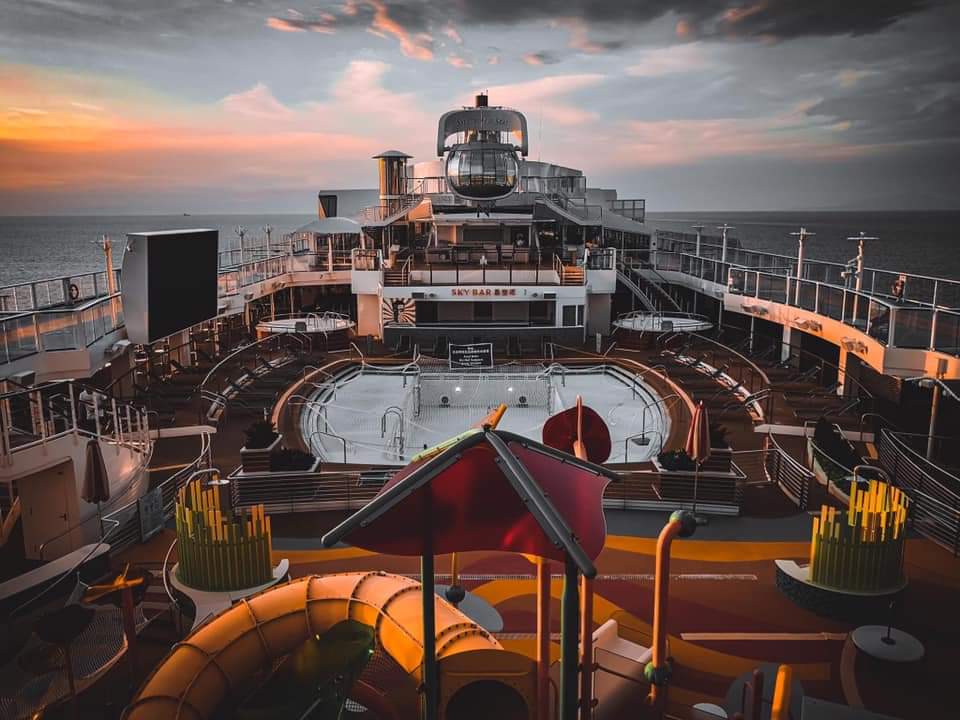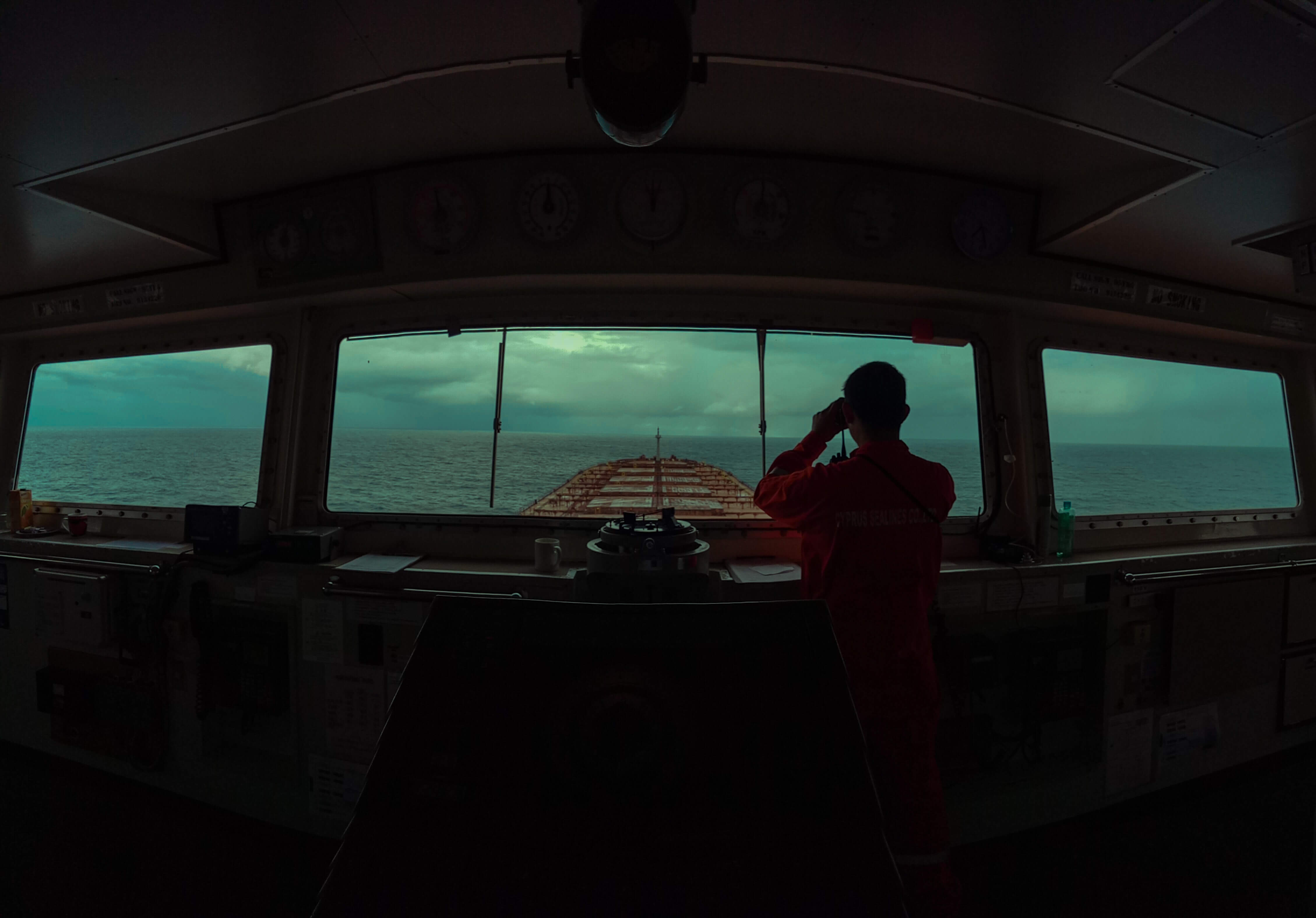Reported
How Big Ag Is Trying to Buck Regulations to Prevent Pollution
Law & Policy•5 min read
Reported
Thousands of seafarers are stranded in countries around the globe as COVID-19 has restricted travel and forced many smaller airports to close.


Words by Holly Pate
In the tiny Pacific island nation of Fiji, nearly a thousand men, mostly from Tonga, have been stranded for months, with no way to get home. In Kiribati, a hundred men are in the same bind. Similar situations are occurring in Egypt and Canada.
Tens of thousands of seafarers are currently separated from their families, having been desperately abandoned in countries scattered around the globe as COVID-19 has closed airports in their native countries, which tend to be smaller and lacking in the capacity to handle the logistics or health care personnel to handle mass repatriations of these crews.
Many of these seafarers have been onboard ships and away from their families for long periods of time. On average, most are being forced to work for at least 18 months, said Markus Schildhauer, the Seamen’s Deacon of the German Seafarers Centre Alexandria.
Working nine months more than their contractual agreement and seven months over the international limit for contracts at sea, according to IMO reports, ship crews are stuck in dire conditions. Some have no source of income during their strandings, and most live in tight quarters during detention, increasing potential health risks.
“We have numerous cases where seafarers were denied to go ashore for normal medical treatment, for highly inflamed teeth, broken bones, and strokes,” said Dr. Max Johns, Chief Representative of the Shipowners at the International Labour Organization (ILO), a UN agency that sets international labor standards, said, adding that several seafarers have died. “I am deeply worried.”


More than 400,000 seafarers globally are trapped on ships because of the pandemic’s travel restrictions, and working with expired contracts, according to the ILO.
Junior Jimmy Nanquil, a Kiribati seafarer currently stranded in Denmark, began work on his container ship in October 2019. Nanquil has not seen his six young children or wife in more than a year. He said he was frustrated that he has not been given clear answers as to when he will be allowed to return home.
“I think our government fully understands the situation we’re in, but they’re currently comfortable and living with their family and loved ones,” said Nanquil, who is among 32 ship workers stranded in Denmark.
The Kiribati government previously told Nanquil and his fellow crew that they would assist the seafarers through repatriation. The latest flight was scheduled for December 9 and subsequently canceled without cause, Nanquil said. He said a rumor was circulating among seafarers that their home country cannot afford to fund these charters.
When we spoke a few months ago, Nanquil added that he was desperate to reunite with his family before Christmas and eat his traditional meal of coconut milk mixed with tuna fish. He did not return home to celebrate.
While some ships are diverting to off-route ports in order to swap crews, this costs the owners hundreds of thousands of dollars; others are resorting to extending crew contracts—or not doing anything at all, significantly impacting crew health and morale.
Kaumai Tanenaa, a Kiribati seafarer who is currently stranded in Hamburg, Germany went to sea in April 2019. Seven months later, his wife gave birth to their first child. Tanenaa has never met his now one-year-old son.
This issue is an acute extension of a long-term, systemic problem in the shipping industry—that of seafarer abandonment. For countries that have ratified the 2006 Maritime Labor Convention, seafarer abandonment can be defined as a shipowner who does not cover the cost of a crew’s repatriation, leaves a crew without the necessary support, or withholds wages.

There have been 460 cases of seafarer abandonment in the last 19 years. In 2020, 49 incidents occurred—the third-highest year on record. However, it is well-known in industry circles that there are many more cases that do not get reported to the ILO or in the media, and therefore never get resolved.
Seafarer abandonment is a longstanding issue caused by a general lack of monitoring or enforcement of the law on the high seas, which is made more complicated due to the transnational nature of international shipping. In any one case, at least four countries—the flag state, the port state, the seafarers’ home state, and the company’s registered state—could be involved. Although there have been recent efforts in the last three years to make reporting more comprehensive, too many incidents still slip through the cracks.
Unlike in typical instances of seafarer abandonment, where crews face a lack of supplies, fuel, and money, the South Pacific seafarers—especially those in Hamburg—are being housed and supported by their companies, and provided with pastoral care by the Deutsche Seemannsmission. However, in Fiji, whose government is badly overstretched, there is less support—and limited news on the situation.
Maritime researchers say that addressing the abandonment issue will be legally difficult, politically unpopular, and resource-intensive. One immediate, viable action includes donating to NGOs that provide support to abandoned seafarers and raise awareness including Deutsche Seemannsmission, Stella Maris, and the ITF, said Schildhauer. This is a necessary first step, but not entirely sufficient.
Humanitarian support of this kind needs to be accompanied by a concerted international effort to track and document cases of abandonment and its perpetrator companies and countries. With sufficient information and public awareness, blacklists and targeted sanctions can be a genuine deterrent and have a punitive impact, said Johns. More broadly, an international protocol specifically addressing the rights of abandoned seafarers could provide the necessary legal firepower to crack down on the practice in a coordinated fashion.
The COVID-19 pandemic has brought the issue of stranded and abandoned seafarers into sharper focus and exposed a systematic failure within the maritime sector. But, it has also made seafarers’ safety more susceptible and even less certain.
“Though the announcements of COVID-19 vaccines can give us hope, seafarers from a number of countries are still severely impacted by lockdowns and border closures,” said Jason Zudeima, General Secretary of International Christian Maritime Association (ICMA), adding that workers in the maritime space are often invisible and overlooked, but they face life and death challenges.
“Being far from family, especially upon entering a new year, is difficult,” said Zudeima.